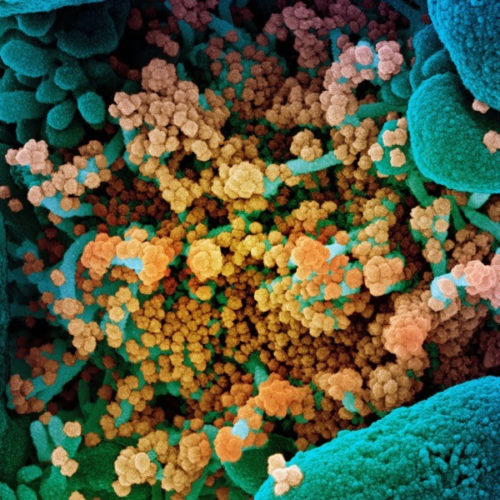Scientists rely on brain-wide association studies to measure brain structure and function—using MRI brain scans — and link them to complex characteristics such as personality, behavior, cognition, neurological conditions and mental illness. New research published in Nature from the University of Minnesota and Washington University School of Medicine in St. Louis is highlighting a path forward for brain imaging...
Tag: <span>brain studies</span>
Researchers identify nanobody that may prevent COVID-19 infection
IMAGE: FROM LEFT: LEO HANKE, BEN MURRELL AND GERALD MCINERNEY, RESEARCHERS AT THE DEPARTMENT OF MICROBIOLOGY, TUMOR AND CELL BIOLOGY AT KAROLINSKA INSTITUTET. Researchers at Karolinska Institutet in Sweden have identified a small neutralizing antibody, a so-called nanobody, that has the capacity to block SARS-CoV-2 from entering human cells. The researchers believe this nanobody has...
Covid 19 outstanding questions
Six months of coronavirus: the mysteries scientists are still racing to solve From immunity to the role of genetics, Nature looks at five pressing questions about COVID-19 that researchers are tackling. In late December 2019, reports emerged of a mysterious pneumonia in Wuhan, China, a city of 11 million people in the southeastern province of...
Brain studies show chronic fatigue syndrome and Gulf War illness are distinct conditions
by Georgetown University Medical Center Gulf War Illness (GWI) and chronic fatigue syndrome (CFS) share symptoms of disabling fatigue, pain, systemic hyperalgesia (tenderness), negative emotion, sleep and cognitive dysfunction that are made worse after mild exertion (postexertional malaise). Now, neuroscientists at Georgetown University Medical Center have evidence, derived from human brain studies, that GWI and...
Body parts respond to day and night independently from brain, studies show
by University of California, Irvine Can your liver sense when you’re staring at a television screen or cellphone late at night? Apparently so, and when such activity is detected, the organ can throw your circadian rhythms out of whack, leaving you more susceptible to health problems. That’s one of the takeaways from two new studies by...


